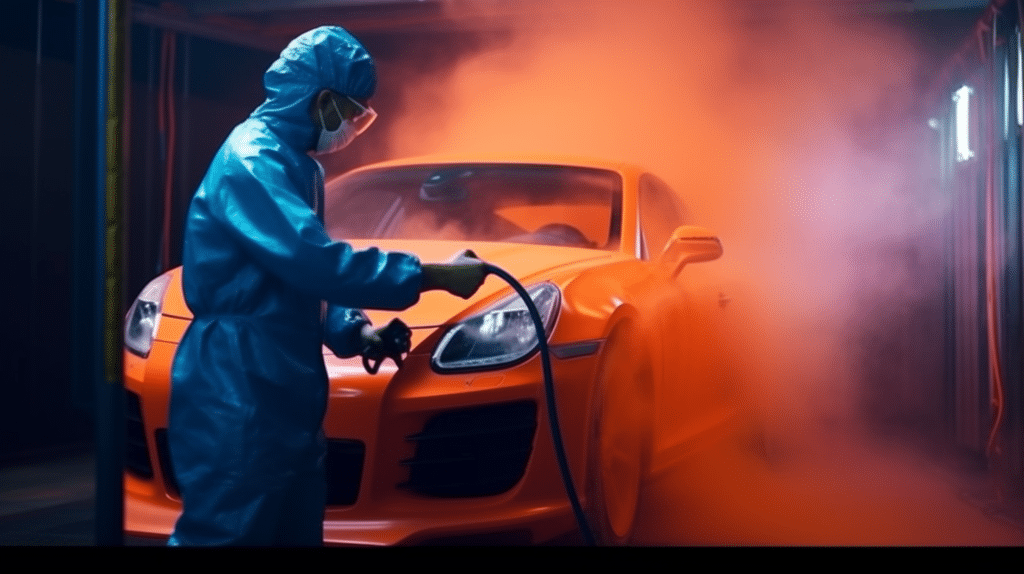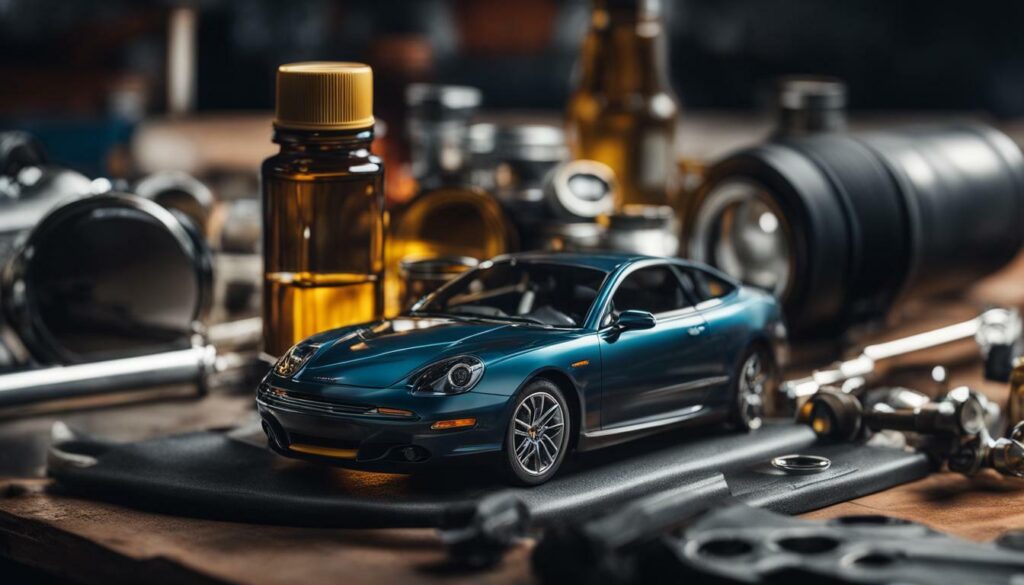Are you experiencing car overheating issues? Don’t worry, you’re not alone. Engine overheating is a common problem that can occur due to various reasons, primarily related to problems within the cooling system. It’s essential to understand the causes of car overheating to take appropriate action and prevent further damage.
Some of the possible causes of car overheating include cooling system leaks, a faulty water pump, a bad radiator, low engine oil level, and thermostat failure. A cooling system leak can result from a faulty hose, worn-out gasket, cracked engine block, or radiator damage. A faulty water pump can disrupt the coolant flow and lead to overheating. Similarly, a bad radiator can block the flow of coolant or have damaged/bent fins, compromising the cooling process. Low engine oil level can increase friction and heat generation in the engine, leading to overheating. A malfunctioning thermostat can disrupt the balance of the cooling system and cause the engine to overheat.
Recognizing the signs of engine overheating is crucial for prompt action. Keep an eye out for steam or smoke coming from under the hood, a temperature gauge spiking, or strange smells. If you notice any of these symptoms, it’s important to take immediate action to cool down the engine and avoid permanent damage.
Key Takeaways
- Car overheating can be caused by cooling system leaks, a faulty water pump, a bad radiator, low engine oil level, or thermostat failure.
- Recognizing signs of engine overheating, such as steam/smoke, a spiking temperature gauge, or strange smells, is crucial for prompt action.
- If your engine overheats, turn off the air conditioner, crank up the heat in the cabin, find a safe place to pull over, and allow the engine to cool for at least 15 minutes.
- Don’t panic during an overheating situation. Restart the engine cautiously and drive to the nearest auto repair shop while monitoring the temperature gauge.
- Regular maintenance, including coolant exchanges and inspections, can help prevent car overheating issues.
Steps to Cool Down an Overheated Engine
When your engine overheats, it is crucial to take prompt action to prevent further damage. Follow these steps to cool down an overheated engine:
- Turn off the air conditioner and crank up the heat in the cabin – By doing so, you reduce the stress on the engine and help dissipate heat more effectively.
- Find a safe place to pull over and shut off the car – It is essential to allow the engine to cool for at least 15 minutes before proceeding.
- Keep an eye on the temperature gauge – While waiting for the engine to cool, monitor the temperature gauge. If it remains high or continues to rise, it is recommended to contact a professional.
- Restart the engine cautiously – Once the engine has cooled down, restart it carefully. Keep an eye on the temperature gauge during this process.
- Drive to the nearest auto repair shop – While monitoring the temperature gauge, drive to the nearest auto repair shop or service center to have your vehicle inspected by a professional.
- Stay calm and focused during the overheating situation – Panicking can lead to reckless driving. It’s important to remain calm, pull over safely, and follow the necessary steps to cool down the engine.
- Do not keep driving with an overheating engine – Continued driving with an overheating engine can cause significant damage to the vehicle. It is crucial to address the issue promptly.
- Wait for the engine to cool before opening the hood – To avoid the risk of burns from steam or smoke, it’s essential to wait for the engine to cool down before opening the hood.
- Get your vehicle inspected by a professional – Finally, do not ignore the issue. It’s important to have your vehicle inspected by a professional to identify and resolve the underlying problem causing the engine to overheat.
Additional Causes of Car Overheating
In addition to the causes mentioned earlier, there are other factors that can contribute to car overheating.
- A defective or loose radiator cap can lead to a loss of pressure in the cooling system, resulting in overheating.
- Degraded hosing, fan, or water pump can cause leaks, blockages, or reduced coolant flow, leading to overheating.
- Oil leaks or improper lubrication can increase friction and heat within the engine, causing overheating.
- Head gasket failure can result in coolant loss and decreased heat transfer, leading to overheating.
- Air in the cooling system can block coolant flow and create hot spots, causing the engine to overheat.
- Other factors like coolant concentration, damaged radiator, and serpentine belt issues can also contribute to overheating.
| Cause of Overheating | Impact on Engine |
|---|---|
| Defective or loose radiator cap | Loss of pressure in the cooling system |
| Degraded hosing, fan, or water pump | Leaks, blockages, or reduced coolant flow |
| Oil leaks or improper lubrication | Increased friction and heat generation |
| Head gasket failure | Coolant loss and decreased heat transfer |
| Air in the cooling system | Blockage of coolant flow and hot spots |
| Other factors (coolant concentration, damaged radiator, serpentine belt issues) | Contributing factors to overheating |
Regular maintenance, including coolant exchanges and inspections, can help prevent overheating issues. It is crucial to promptly address any coolant leaks or other cooling system problems to maintain engine health.

Summary and Tips for Preventing Car Overheating
Car overheating can be caused by various issues within the cooling system and engine components. To prevent damage, it’s crucial to be aware of the signs of engine overheating and take immediate action.
If your engine starts to overheat, follow these steps to cool it down: turn off the air conditioning and crank up the heat in the cabin to reduce stress on the engine. Find a safe place to pull over and shut off the car. Allow the engine to cool for at least 15 minutes while keeping an eye on the temperature gauge. Restart the engine cautiously and drive to the nearest auto repair shop while monitoring the temperature gauge.
To prevent car overheating, regular maintenance is key. Schedule coolant exchanges and inspections as recommended by the manufacturer. Address coolant leaks promptly and maintain proper oil levels. Additionally, monitor the condition of radiator components, such as the cap, hoses, and fins. These preventive measures can help ensure a well-maintained cooling system and prevent car overheating issues.
If you experience car overheating despite taking preventive measures, it’s essential to consult a professional repair shop. They can diagnose and resolve any underlying issues that may be causing the overheating. By following these tips and staying proactive with engine maintenance, you can prevent car overheating and enjoy a safer driving experience.
FAQ
What are the common causes of car overheating?
The common causes of car overheating include cooling system leaks, a faulty water pump, a bad radiator, low engine oil level, and thermostat failure.
How can a cooling system leak cause car overheating?
A cooling system leak can result from a faulty hose, worn-out gasket, cracked engine block, or radiator damage. It can lead to a loss of coolant and disrupt the engine’s ability to cool down, causing overheating.
What role does a faulty water pump play in car overheating?
A faulty water pump can disrupt the flow of coolant through the engine, leading to inadequate cooling and overheating.
How does a bad radiator contribute to car overheating?
A bad radiator can block the flow of coolant or have damaged/bent fins, compromising the cooling process and resulting in overheating.
Can low engine oil level cause car overheating?
Yes, low engine oil level can increase friction and heat generation in the engine, leading to overheating.
What role does a malfunctioning thermostat play in car overheating?
A malfunctioning thermostat can disrupt the balance of the cooling system and cause the engine to overheat by not allowing the coolant to circulate properly.
What are the signs of an overheated engine?
Common signs of an overheated engine include steam or smoke from under the hood, a spiking temperature gauge, and strange smells.
What should I do if my car overheats?
If your car overheats, the first step is to turn off the air conditioner and crank up the heat in the cabin to reduce stress on the engine. Find a safe place to pull over, shut off the car, and allow the engine to cool for at least 15 minutes. Keep an eye on the temperature gauge while waiting for the engine to cool. If the temperature remains high, contact a professional. Restart the engine cautiously and drive to the nearest auto repair shop while monitoring the temperature gauge. Avoid panicking and stay calm during the overheating situation.
Is it safe to drive with an overheating engine?
No, it is not safe to drive with an overheating engine as it can cause significant damage to the vehicle. It is important to take immediate action to cool down the engine and avoid permanent damage.
How can I prevent car overheating?
Regular maintenance, including coolant exchanges and inspections, can help prevent car overheating. Addressing coolant leaks, maintaining proper oil levels, and monitoring the condition of radiator components are also essential preventive measures.
What should I do if I experience car overheating frequently?
If you experience car overheating frequently, it is recommended to consult a professional repair shop to diagnose and resolve the underlying issues. Ignoring the problem can lead to further damage and more expensive repairs.




